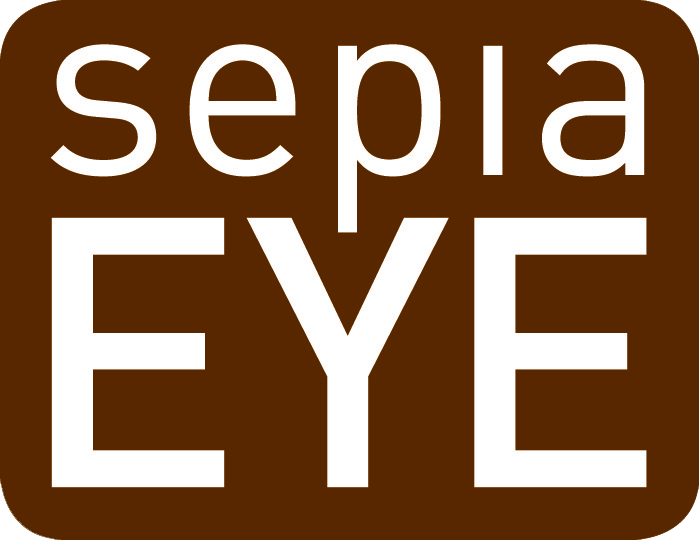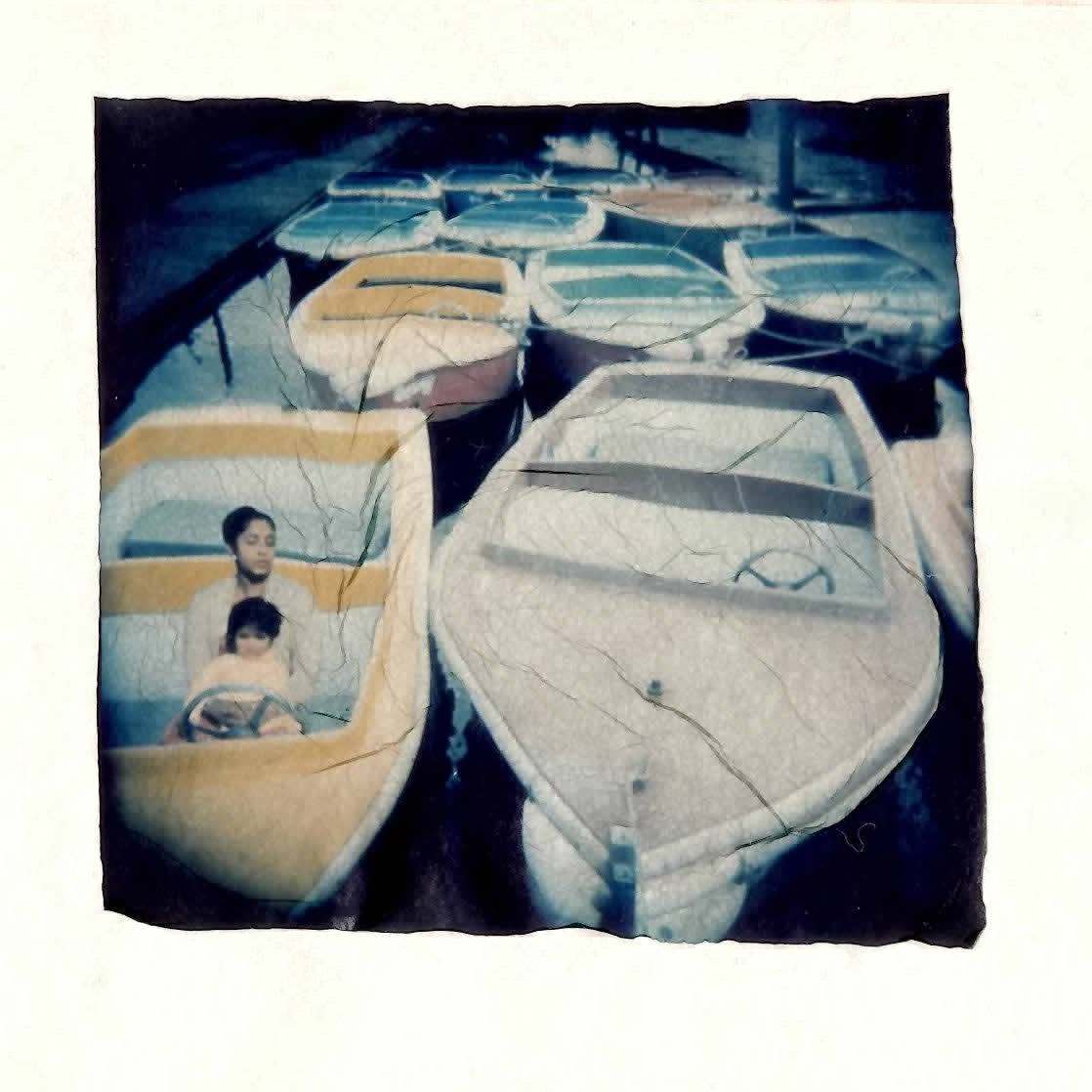Annu Palakunnathu Matthew: The Answers Take Time
September 15 – October 27, 2024
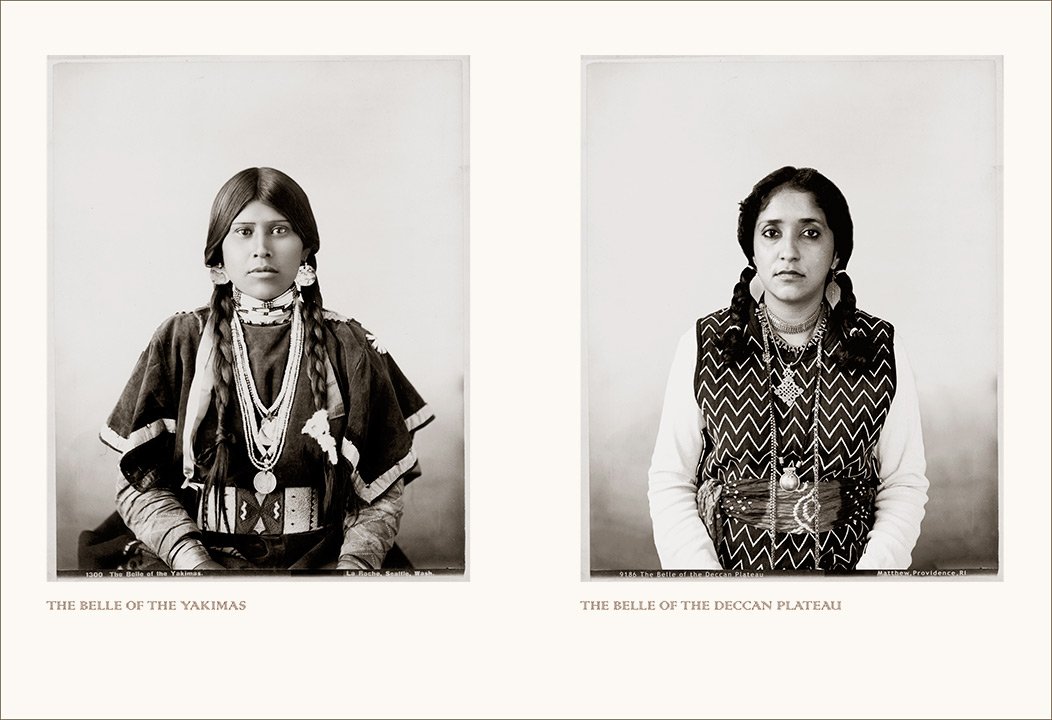
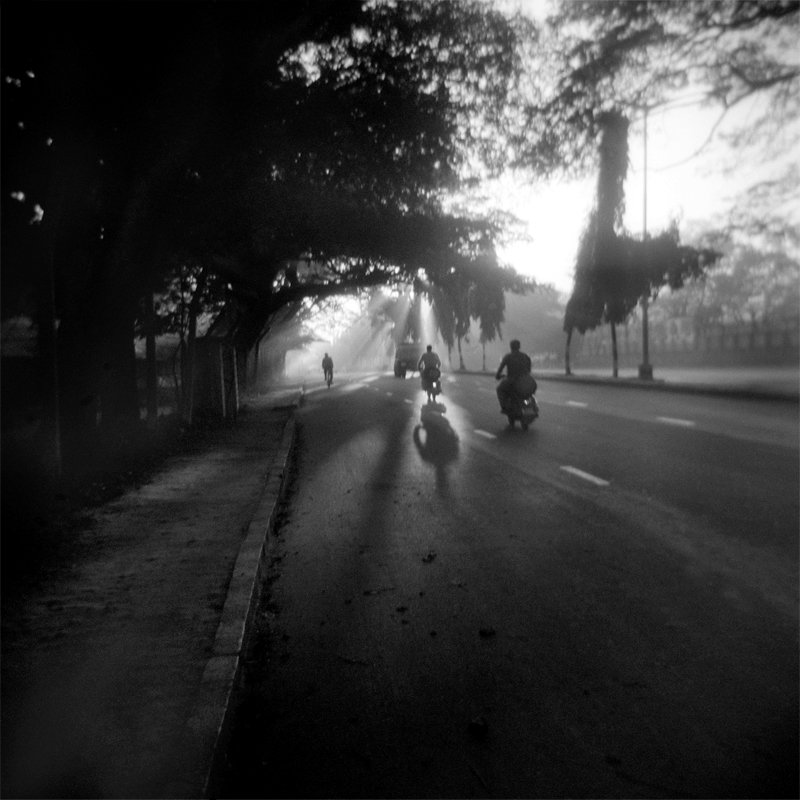
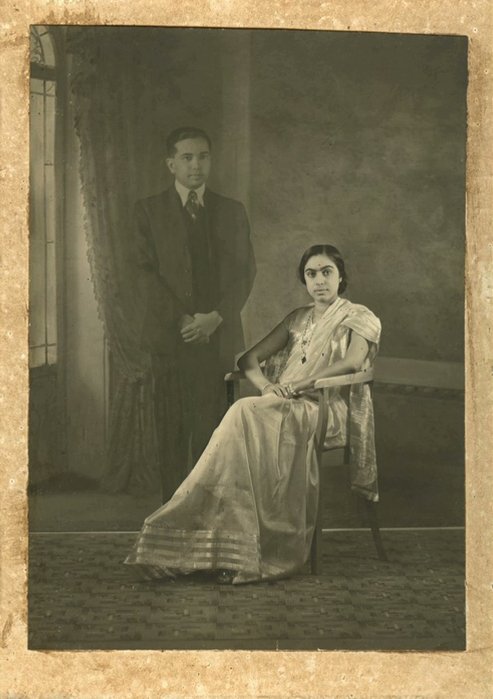
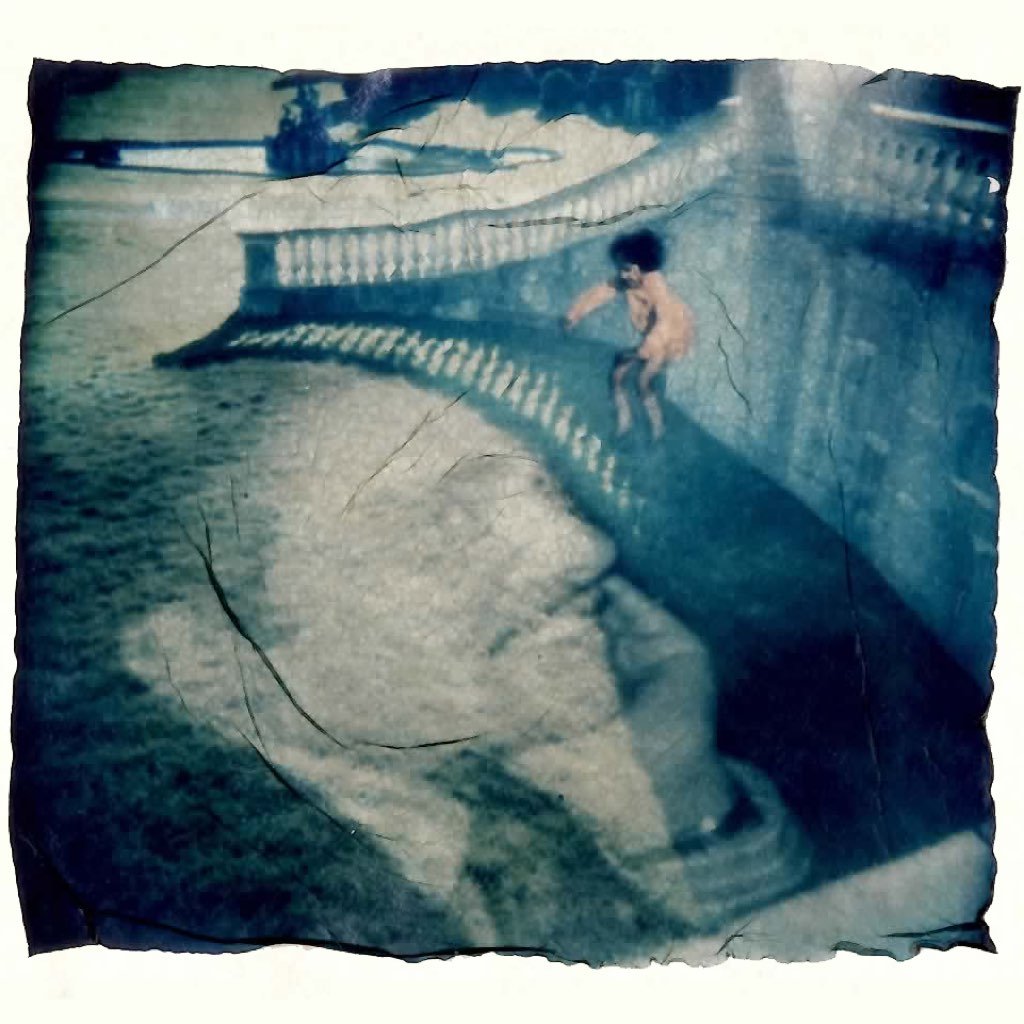
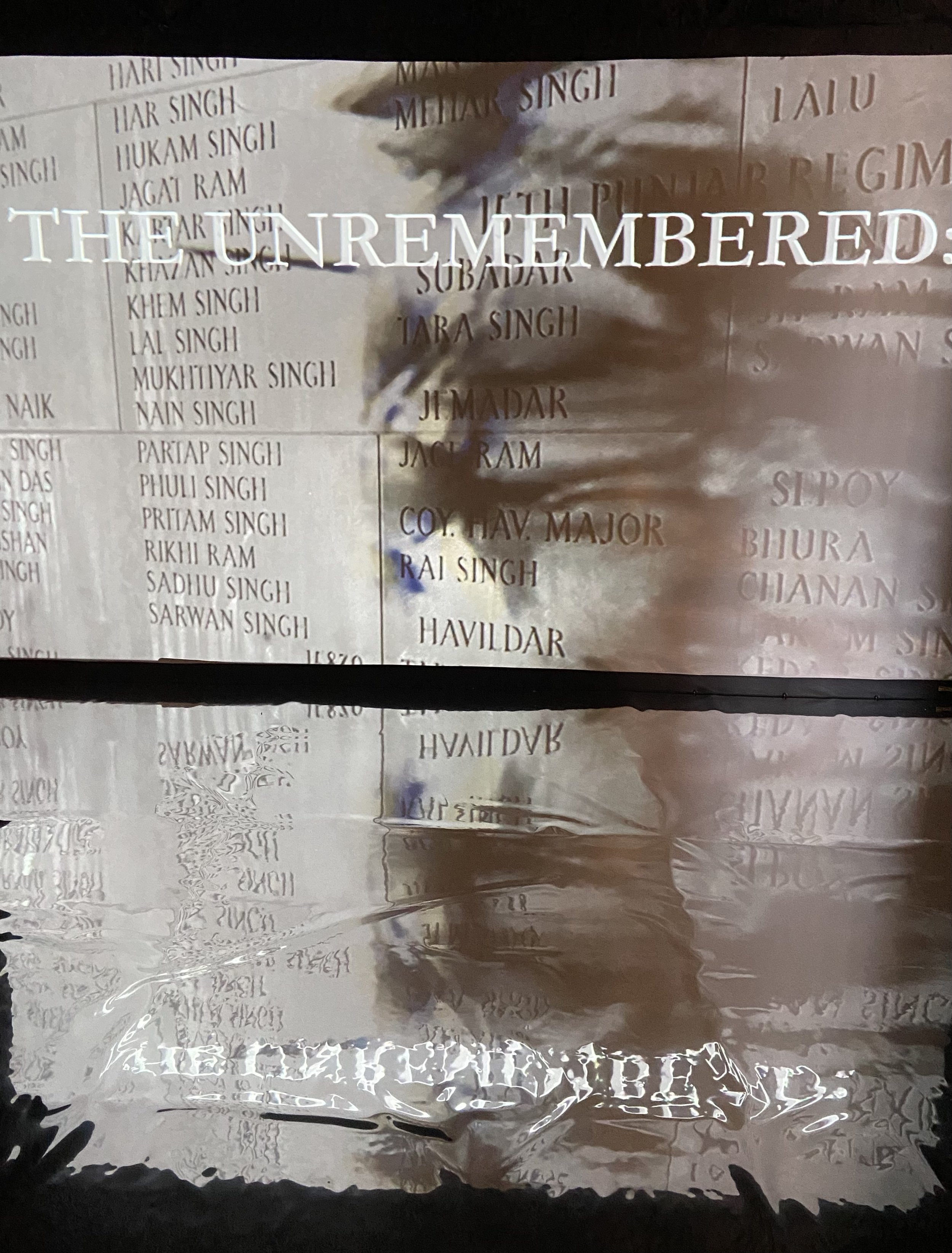
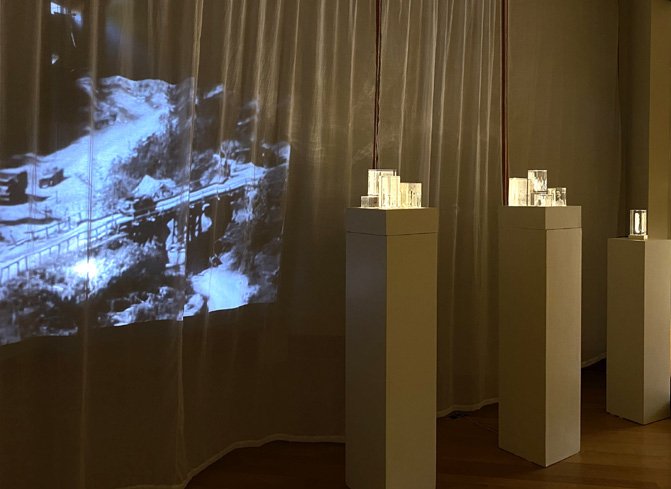
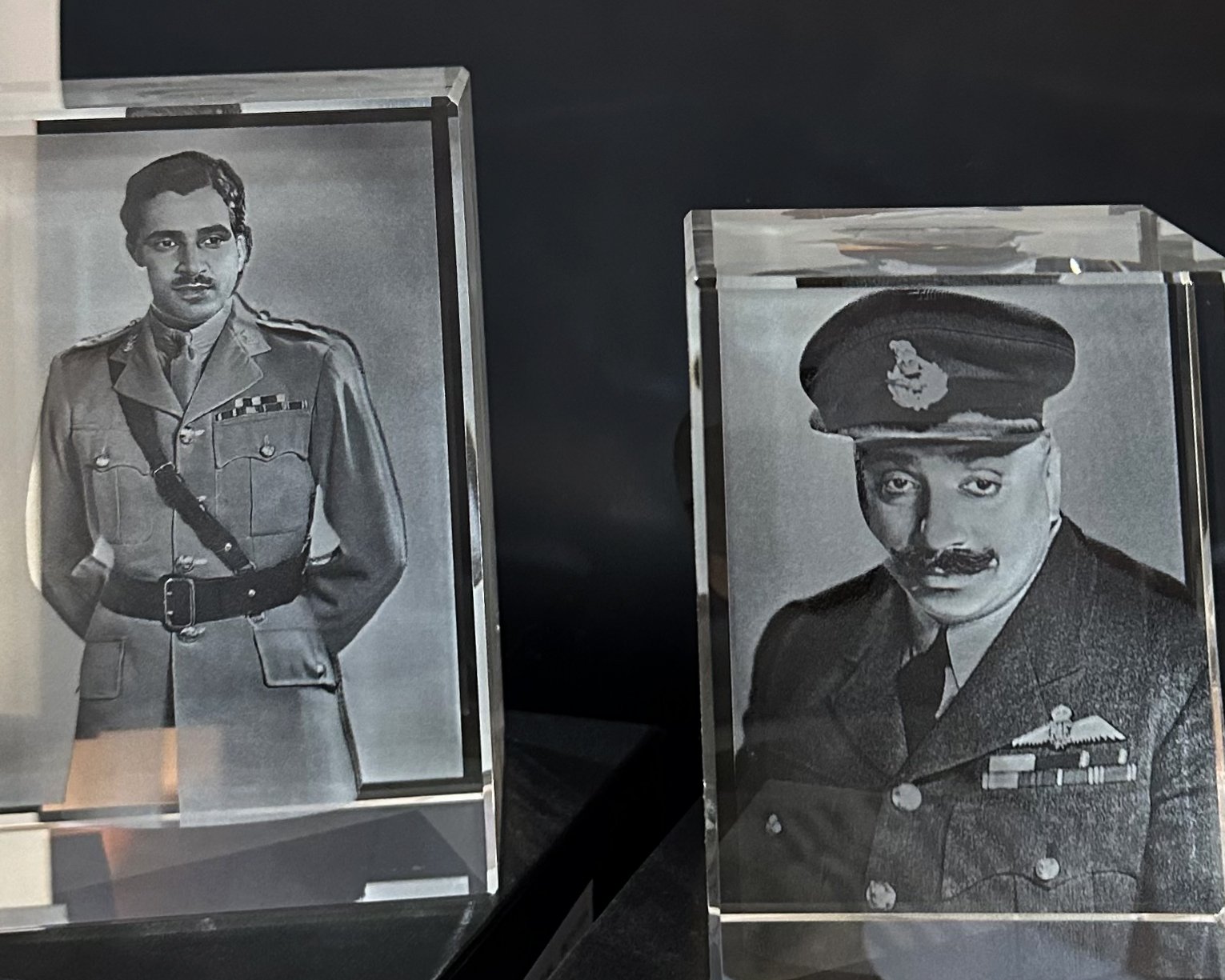
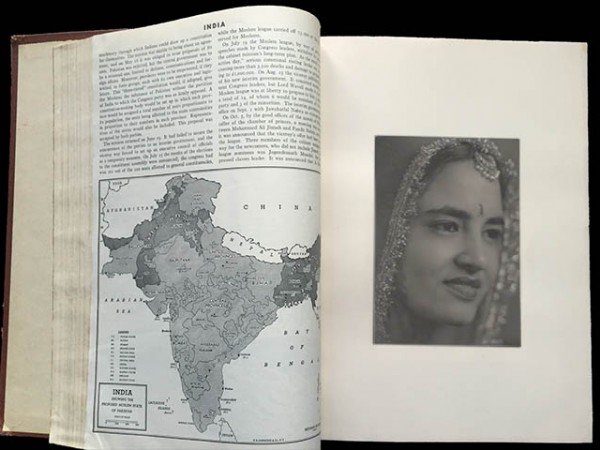
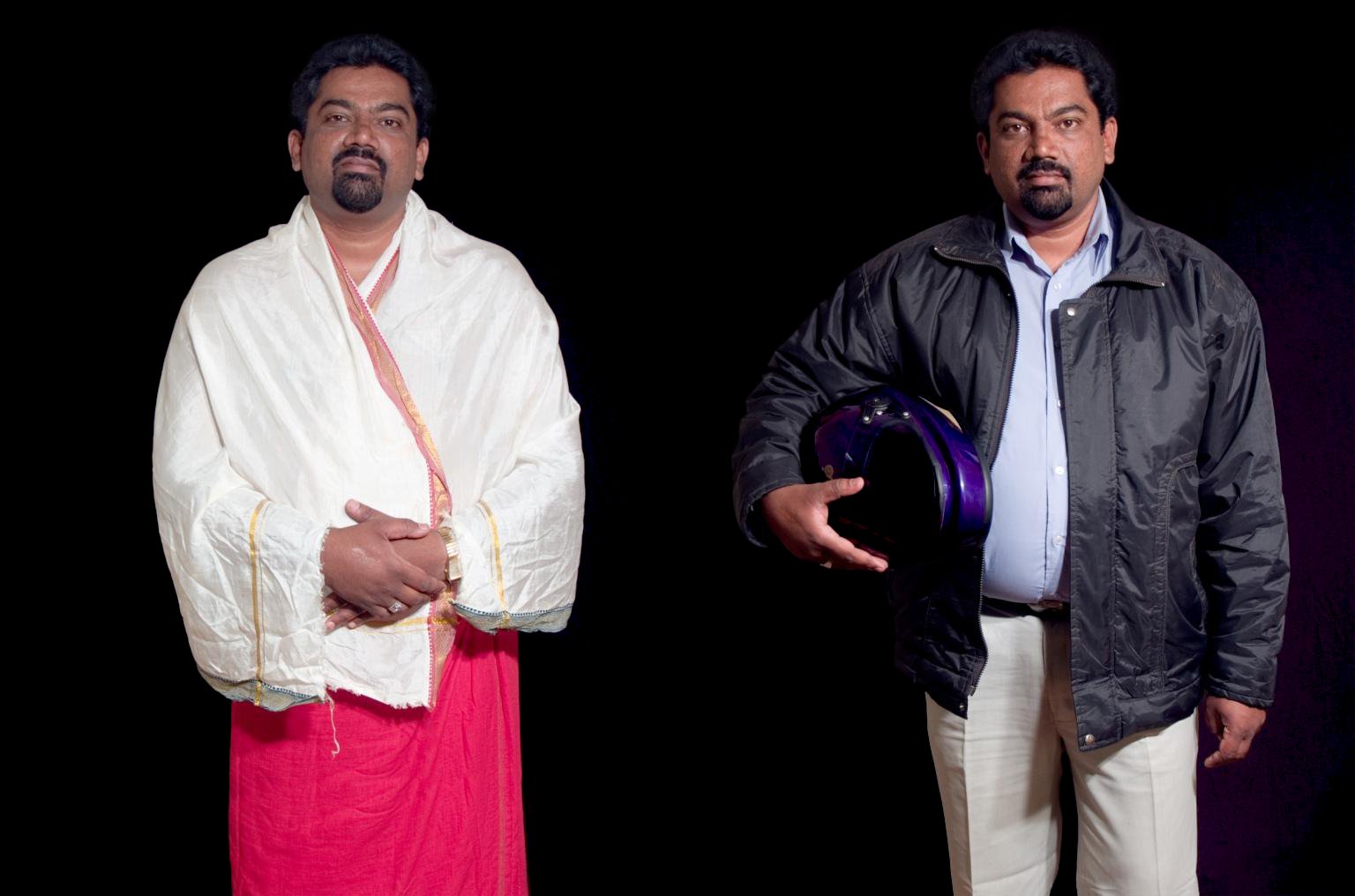
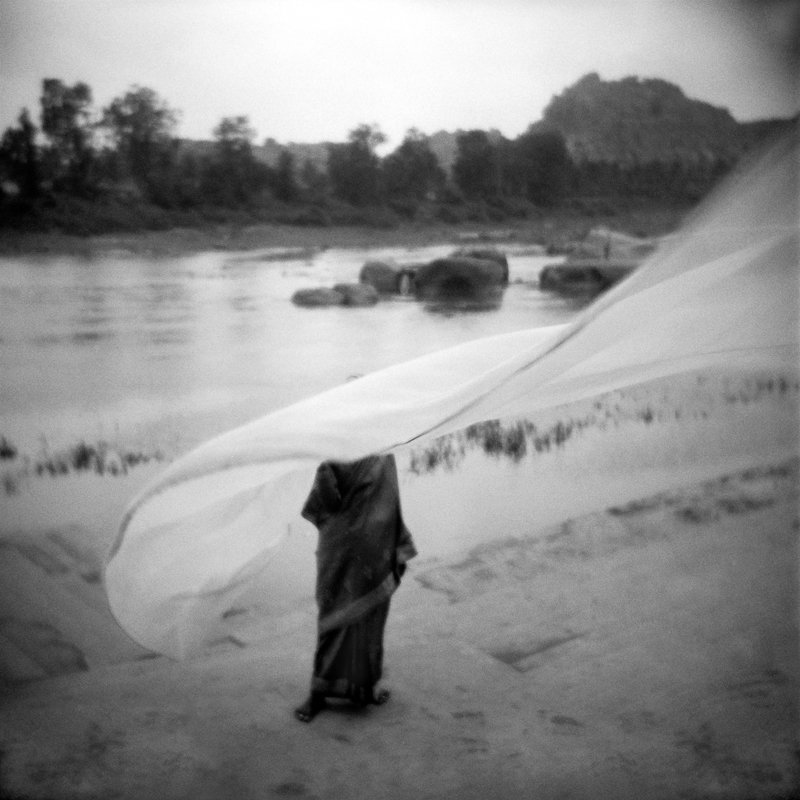
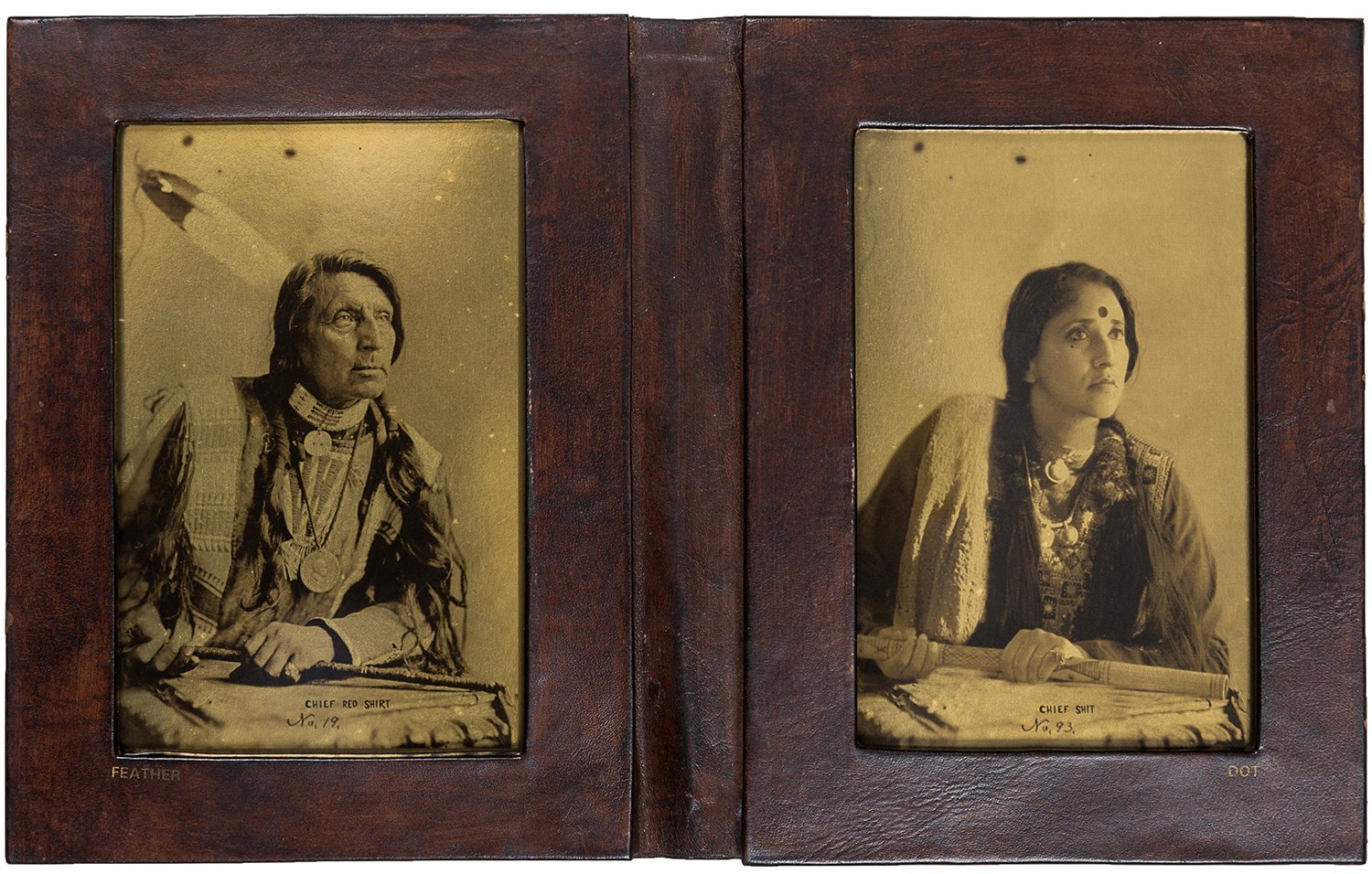
The Dr. Bhau Daji Lad Mumbai City Museum, in collaboration with sepiaEYE, is pleased to present The Answers Take Time, a retrospective of Annu Palakunnathu Matthew’s work accompanied by the monograph of the same title. We acknowledge the support of The Mehrangarh Museum Trust, Jodhpur, for this project.
Curated by Esa Epstein, this exhibition showcases eight distinct bodies of work that span nearly three decades of Matthew’s career. The Answers Take Time (by Minor Matters/sepiaEYE, 2022) is Matthew’s first monograph covering her mid-career survey. It elucidates a conceptual artist’s progression using photography, collage, animation, and parody to explore performative and nuanced elements of cultural identities. Matthew draws on personal experiences and then collaborates to tell the stories of others. Although she began her career as an accomplished still photographer, her artistic practice has expanded, incorporating a unique toolbox of stills, moving images, and sound for an immersive experience for the viewer. These works often draw on archival photographs for their inspiration and re-examine historical narratives and the legacies of colonization.
“What is central to Matthew’s transformation of time is her exhilarating use of a range of photographic technologies. . . While many conventionally understand photographs as a record of the past, through Matthew’s art, we discover that the photograph can become a living entity, an archival object that contains its own future. The photograph, in other words, becomes the migrant that traverses time and space. For viewers who travel with Matthew’s images through their many permutations, we find ourselves unexpectedly moved, as if we are also immigrants on this journey.”
— Dr. Bakirathi Mani, Essay, The Answers Take Time, 2022
University of Pennsylvania Presidential Compact Professor of English
Born in England, Matthew moved to India at age 11. Her father, the family’s photo-documentarian, passed away shortly after. His passing lost the so-called photographic “proof” of her childhood memories. In Fabricated Memories, the artist composites her childhood family snapshots with images made during a visit to England 20 years after her father’s death. These seemingly realistic events did not occur but accurately depict Matthew’s memories of her father and her childhood in England. The work is presented as a handmade accordion book of digitally altered Polaroid transfers. As her father died from health issues exacerbated by smoking, the book is bound in paper made from tobacco leaves and housed in a cigarette box stained with tobacco juice to lead the viewer into her fabricated memories further using the senses of sight, touch, and smell.
Immigrating to America at 28 to begin her photographic career, Matthew developed a unique take on family, memory, and the construction of parallel realities, identities, and histories woven seamlessly into her imagery. The dreamlike black and white photographs from her Memories of India series, taken with a cheap plastic “Holga” camera, capture fleeting memories of India. The atmospheric and cloudy images speak to her visceral response to the sights, smells, and activities of her travels. In her essay Memory’s Kingdom, Vicki Goldberg states, “[Matthew’s] sense of self is ambiguously located between England, India, and America, and these images hover ambiguously between dream and reality, document and fantasy, clarity, and obscurity, today and long ago. Memory and time, those elusive qualities, are malleable in Matthew’s hands. Here, they merge in an evocative personal account of a country partially erased by camera light, time, and what it called progress.”
As an immigrant in the United States, in An Indian from India, a series of diptychs, Matthew tackles the misguided question::“But where are you really from?” Stemming from the need to explain herself as “an Indian from India,” the artist presents 19th and early 20th-century portraits of Native Americans, photographed as exotic “others.” Matthew mimics this approach in the second image of the diptych, recreating the scene with herself as the sitter, an “Indian from India,” reversing the colonial gaze so familiar in 19th-century photography of Indians by the British. This series reflects on the early work of American photographers, including Edward Curtis, who photographed Native Americans. Matthew modernizes the process of orotones to mimic the early portfolio format of cased images meant to be “read” like a book.
Still photography, photo animation, video, and sound are deftly used in Matthew’s cultural investigations. Matthew delves into the children’s memories of the 1947 Partition of India in Open Wound. Here, she retells other people’s stories and uses family photographs and reenactments to create poignant photo animations with excerpts from their discussions. Re-Generation employs an investigative process where she focuses on women in the context of globalization across generations.
In Virtual Immigrant, Matthew tells the story of call center workers in Bangalore who alternate between their Indian selves and their roles as Westerners online. The life-size lenticular works display two versions of the same person. By moving back and forth, the viewer sees both identities and hears the actual voices of the subjects as they recount their experiences. This audio-visual series incorporates a nontraditional process of lenticular printing, which is more commonly used for small trinkets and gifts.
This exhibition features two works exposing the forgotten past of Indian soldiers who fought for the British during World War II — The Unremembered: The Indian Soldiers from World War II and The Indian Soldiers from the Italian Campaign of World War II (commissioned by the Kochi Biennial, 2018). By blending photographs, video, sound, 3D laser-cut crystals, and text, Matthew creates a dynamic and immersive experience for the viewers to bring untold stories to life.
Matthew’s work has garnered international acclaim, with notable exhibitions at prestigious institutions that underscore the global significance of her artistic contributions. She has exhibited in solo shows at the The Royal Ontario Museum; The Newport Art Museum; and Nuit Blanche Toronto. Selected group exhibitions include The RISD Museum; The Museum of Fine Arts, Boston; Museum of Fine Arts Houston; The San Jose Museum of Art; The Victoria & Albert Museum; The Smithsonian Institution; Noorderlicht Photofestival; Le Mois de la Photo à Montréal Photo Biennale; Kochi-Muziris Biennale; and Guangzhou Photo Biennial.
A passionate mentor to students and emerging artists, Matthew is a Professor of Art at the University of Rhode Island who graciously support her work. She also served as the Director of the Center for Humanities and the Silvia Chandley Professor of Nonviolence and Peace Studies. Matthew has received many grants and fellowships, including two Fulbright Fellowships, a MacColl Johnson Fellowship, the John Gutmann Fellowship, the Rhode Island State Council of the Arts Fellowship, and the American Institute of Indian Studies Creative Arts Fellowship. She was an artist-in-residence at the Yaddo and MacDowell Colonies.
The Dr. Bhau Daji Lad Museum is Mumbai’s first museum, established in 1857, and is the erstwhile Victoria and Albert Museum, Bombay.
The Museum building and collections underwent a comprehensive, UNESCO-Award winning restoration, spearheaded by Tasneem Zakaria Mehta as the convenor of the Mumbai Chapter of the Indian National Trust for Art and Cultural Heritage (INTACH), and supported by the Municipal Corporation of Greater Mumbai and the Jamnalal Bajaj Foundation. Since it opened to the public in 2008, the Museum has pioneered contemporary art, which is presented in the extraordinary 19th-century building, one of the finest in India, in an attempt to rethink the cannon and challenge colonial and enlightenment precepts.
ANNU PALAKUNNATHU MATTHEW: THE ANSWERS TAKE TIME
Dr. Bhau Daji Lad Mumbai City Museum
Special Project Space
Veer Mata Jijabai Bhosale Udyan (Rani Baug)
91/A, Dr Babasaheb Ambedkar Road
Byculla East, Mumbai 400027
Exhibition Dates: September 15 - October 27, 2024
Preview and Book Signing: September 14, 6:00pm
Artist Walkthrough with Sabeena Gadihoke: September 14, 6:20pm
Press Release (PDF)
Exhibition List (PDF)
